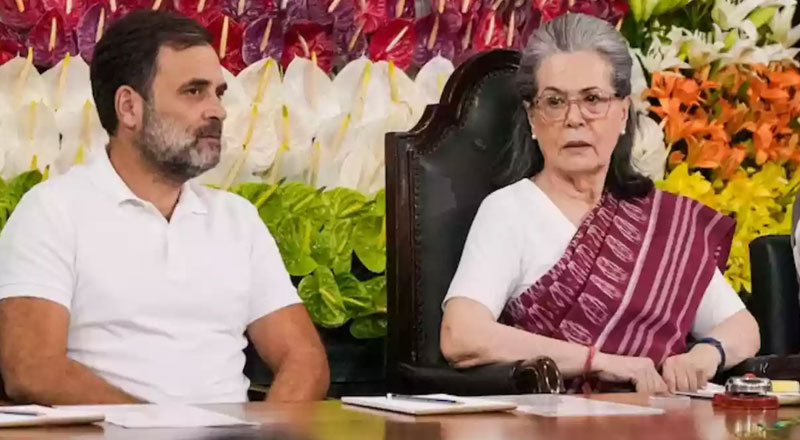A Legacy of Journalism Entangled in Legal Controversy
The National Herald case has become one of India’s most high-profile legal and political controversies, intertwining historical legacy with present-day accountability. What began as a defunct newspaper venture has now spiralled into a full-blown money laundering investigation, drawing in senior Congress leaders, including Sonia Gandhi and Rahul Gandhi.
At the heart of the case lies Associated Journals Limited (AJL), the original publisher of the National Herald newspaper established by Jawaharlal Nehru in 1938. In 2011, control of AJL was transferred to Young Indian Limited (YIL), a company in which Sonia and Rahul Gandhi collectively hold a majority stake. This transition has triggered serious legal scrutiny, with allegations that the transfer allowed the Congress leadership to gain control over real estate assets worth over ₹2,000 crore for a mere ₹50 lakh.
Initiated by BJP leader Subramanian Swamy through a 2014 private complaint, the case has unfolded over the past decade, surviving legal hurdles and culminating in a deep investigation by the Enforcement Directorate (ED). It is this probe that has now reached a decisive stage, with ED moving to seize immovable properties linked to the Congress leaders.
ED Begins Asset Possession Across Multiple Cities
On April 11, the ED issued notices to property registrars in Delhi, Mumbai, and Lucknow to initiate formal possession of properties previously attached in connection with the case. These assets belong to AJL but are now under the control of Young Indian, whose primary stakeholders are Sonia and Rahul Gandhi.
This move comes after the ED’s provisional attachment of assets—worth approximately ₹661 crore in real estate and ₹90.2 crore in AJL shares—was confirmed by an Adjudicating Authority on April 10. With this confirmation, the ED has the green light to move from attachment to possession.
A separate notice has been sent to Jindal South West Projects, the occupant of three floors in Mumbai’s Herald House, instructing them to deposit all future rent payments directly with the ED.
The Financial Allegations: A Complex Web of Transactions
The ED’s probe, which formally began in 2021, claims to have uncovered a pattern of financial misconduct involving the laundering of ₹988 crore through AJL-linked assets. According to the agency, the AJL–Young Indian arrangement facilitated the illegal generation of funds, including ₹18 crore through fictitious donations, ₹38 crore in advance rents, and ₹29 crore through manipulated advertising transactions.
The central allegation is that Congress leaders used their political influence to execute a financial restructuring that allowed them to gain control over AJL’s substantial property holdings under the guise of a legitimate business transaction. The agency describes this as a “malicious takeover,” orchestrated through a “political-financial nexus.”
Despite legal challenges mounted by the accused, the Delhi High Court and the Supreme Court allowed the investigation to proceed, affirming the legitimacy of the inquiry into the financial dealings of Young Indian.
Legal and Political Implications for the Congress Party
The ongoing developments in the National Herald case have significant implications for the Congress party, particularly as it navigates political battles ahead of national elections. The ED’s action to seize assets linked to its top leadership not only creates legal pressure but also serves as a potent political weapon in the hands of the ruling party.
Critics argue that the case reflects targeted political vendetta, while supporters of the investigation see it as a necessary step toward transparency and financial accountability in public life. The ED, however, maintains that the action is driven purely by evidence and the rule of law, not political considerations.
A Turning Point in a Long-Running Case
With the ED initiating possession of properties in multiple cities, the National Herald case enters a decisive phase. What was once a dispute over ownership and valuation has now escalated into a battle over alleged money laundering and fraudulent financial conduct involving India’s foremost political family.
For Sonia and Rahul Gandhi, the legal challenges are far from over. For the Congress party, the consequences may be even deeper—touching public perception, electoral viability, and its narrative on governance and corruption.
The unfolding legal saga underscores a broader theme: that historical legacy, political stature, and organizational heritage offer no shield against legal accountability. As the case continues, it will shape not only legal discourse but also the future of political ethics in India.
(With agency inputs)





